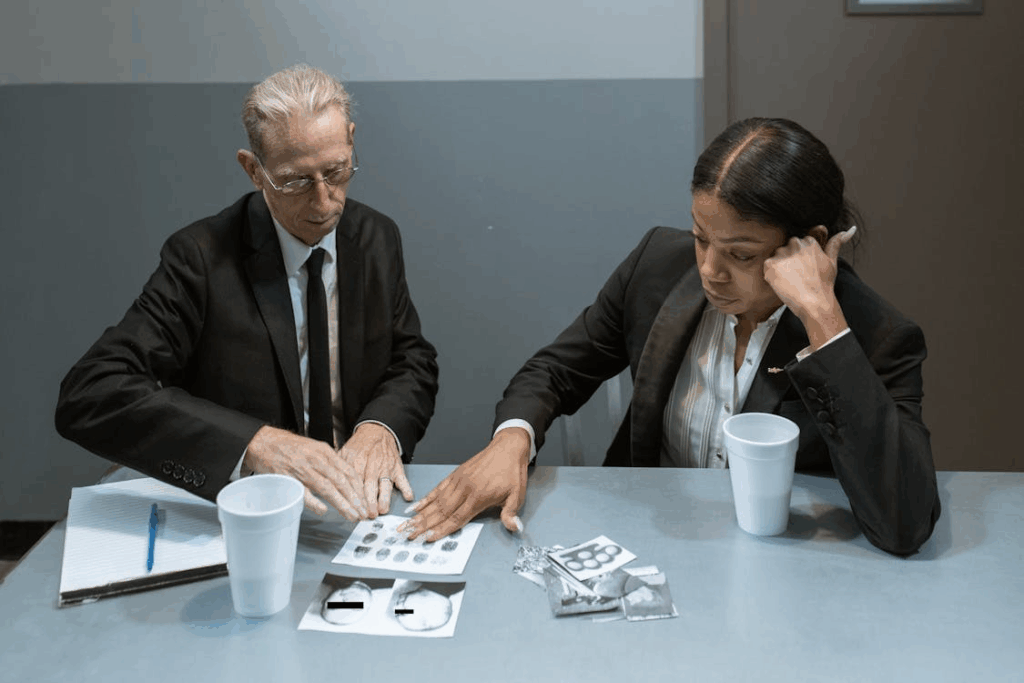
Forensic genealogy has emerged as a groundbreaking tool in crime investigations, breathing new life into cold cases and providing answers where traditional methods have failed.
By leveraging advanced DNA analysis and traditional genealogy services, it connects crime scene DNA to potential suspects through their distant relatives. However, this powerful investigative tool is not without its complexities, facing significant challenges related to privacy, data quality, legal precedents, and technological limitations.
Understanding these hurdles is essential for its responsible and effective application.
The Rise of a New Investigative Frontier
In recent years, the concept of a DNA detective online has moved from science fiction to reality. Law enforcement agencies are increasingly turning to investigative genealogy services to identify unknown perpetrators or victims by uploading crime scene DNA profiles to public genealogy databases. These profiles, often containing Single Nucleotide Polymorphism (SNP) data, are then matched against the vast trove of genetic information voluntarily submitted by individuals seeking to uncover their own family history. When a close enough match is found, professional genealogists, often operating as online DNA analysts, meticulously construct family trees to narrow down potential suspects, providing important leads for investigators. This cutting-edge approach, often referred to as online forensic genealogy services, has seen remarkable success in solving cases that had languished for decades, offering hope to victims’ families and bringing perpetrators to justice.
Privacy Concerns: The Ethical Tightrope Walk
One of the most significant forensic genealogy services lies in the ethical tightrope walk between public safety and individual privacy. When individuals submit their DNA to direct-to-consumer (DTC) genealogy services, they typically do so with the intention of discovering their ancestry or connecting with relatives. The idea that their genetic information, or that of their distant family members, could be used in a criminal investigation raises considerable privacy concerns.
While some databases have implemented policies requiring explicit consent for law enforcement access, others have historically allowed it with less stringent requirements. This has led to debates about informed consent and whether individuals truly understand the implications of sharing their genetic data. The “third-party doctrine,” which suggests there’s no reasonable expectation of privacy for information voluntarily shared with third parties, is often invoked, but the unique and deeply personal nature of genetic information complicates this legal interpretation. Ensuring transparent practices and clear communication from online forensic genealogy services about data usage is paramount to maintaining public trust and ethical standards.
Data Quality and Database Diversity: Gaps in the Genetic Net
Another critical limitation is the quality and diversity of data within existing genealogical databases. The success of forensic genetic genealogy hinges on finding a sufficiently close match within these repositories.
- Incomplete or Inaccurate Family Trees:Genealogical research, by its nature, relies on historical records and user-generated data, which can contain errors, omissions, or even intentional misrepresentations. Misattributed parentage, adoptions (both formal and informal), and gaps in historical documentation can create “brick walls” in family trees, making it difficult for an online DNA analyst in Florida to accurately trace lineages.
- Lack of Diversity:A substantial portion of the DNA profiles in many public genealogy databases belong to individuals of European descent. This demographic bias poses a challenge when investigating crimes involving individuals from underrepresented populations. If a perpetrator’s ancestry is not well-represented in the databases, the chances of finding a viable match decrease dramatically, potentially hindering justice for certain communities.
- Degraded or Contaminated Samples:Crime scene DNA is often degraded or contaminated, making it challenging to extract a high-quality SNP profile suitable for DNA analysis in Belleair. While technological advancements are improving the ability to work with difficult samples, limitations still exist, especially in older cold cases.
Legal Implications and Admissibility of Evidence
The legal area surrounding forensic genealogy challenges is still evolving. While the technique has proven highly effective in generating investigative leads, its role in court as admissible evidence is subject to scrutiny.
- Evidentiary Standards:Courts must determine whether the genealogical findings meet the stringent standards for scientific evidence. This includes questions regarding the validation of methodology, known error rates, and the qualifications of the presenting hire a genetic genealogist.
- Chain of Custody and Consent:Legal challenges may arise concerning the chain of custody for the original DNA sample and the consent given by individuals whose DNA led to the identification of a suspect. Defense attorneys may argue that the data was obtained without proper consent or that the methods used were unreliable.
- Legal Frameworks:Many jurisdictions are still developing clear legal frameworks and guidelines for the use of investigative genealogy services by law enforcement, leading to inconsistencies and potential legal hurdles.
Technological Limitations and Future Directions
Despite significant advancements, technological limitations remain. While SNP-based analysis provides more genetic information than traditional Short Tandem Repeat (STR) profiles used in CODIS, the sheer volume of data required for distant cousin matching can still be a hurdle. The ability to extract sufficient and high-quality DNA from increasingly challenging samples is an ongoing area of research.
However, the field of forensic genetic genealogy is rapidly evolving.
Researchers are continually developing more sensitive DNA analysis techniques and sophisticated algorithms to better interpret genetic relationships, even from small or degraded samples. As more individuals contribute their DNA to databases, and as these databases become more diverse, the efficacy of forensic genealogy services will undoubtedly increase.
Conclusion: A Powerful Tool with Growing Pains
Forensic genealogy represents a powerful leap forward in crime investigation, offering unprecedented opportunities to solve intractable cases. However, its continued success hinges on addressing the inherent forensic genealogy challenges.
If you’re looking for professional genealogy services in Florida, including expert assistance with complex genetic puzzles, reach out to DavisDNA and Family Research. Our team of experienced online DNA analysts and genealogy specialists is dedicated to providing comprehensive and ethical online forensic genealogy services to help you uncover the answers you seek.



